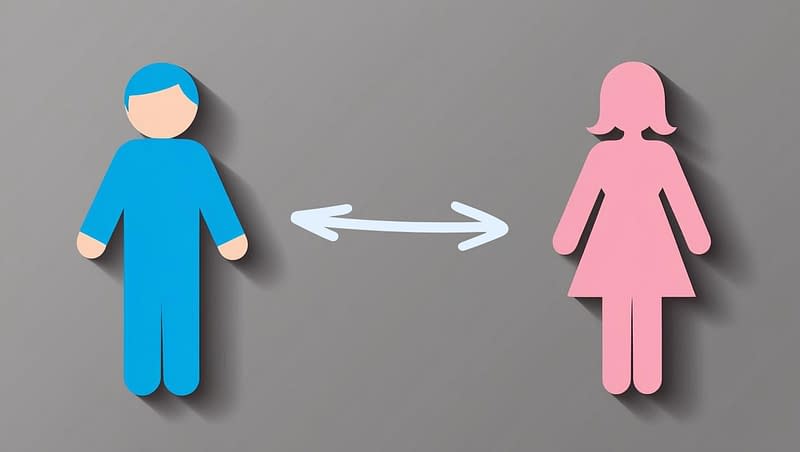Following a chat with Tara Humphrey on THC’s The Business of Healthcare Podcast and discussions over recent months with PCN Clinical Directors, Practice Managers, and GP Partners around workforce planning, there appears to be a growing desire to assess the impact of the ARRS roles in practice. After all, how can you plan your primary care workforce without understanding the benefits and impacts of the constituent roles?
We are all aware of the growing challenges that primary care finds itself under with increasing demand for quicker face to face access to GPs contrasted against ‘real time’ reductions in funding. Given “Agenda for Change” (AfC) and other inflationary pressures not being reflected in the current core practice or ARRS funding, it is only natural that practices and primary care networks ask the question:
Is it* worth it?
*ARRS roles, including: Clinical/Senior Pharmacist, Pharmacy Technician, Social Prescribing Link Worker, Health And Wellbeing Coach, Care Co-Ordinator, First Contact Physiotherapist, Paramedic, Occupational Therapist, Podiatrist, Dietitian, Nursing Associate, Trainee Nursing Associate, Adult Mental Health Practitioner, Children And Young People’s Mental Health Practitioner, Physician Associate, General Practice Assistant, Digital And Transformation Lead, Advanced Practitioner.
This question refers to both the clinical and non-clinical services provided by general practice for the patients they serve. With the introduction of the ARRS and the creation of primary care networks back in 2019, there has been a significant shift in funding and the diversity of roles within primary care.
Many of these roles are now well integrated adding significant value to both patients and practices in terms of reducing clinical pressure on doctors, nurses and other established primary care clinicians. Several roles stand out in this category including pharmacists, who can provide significant additional value through a myriad of clinical services. Paramedics, who can offer similar diversity in the range of support they offer, be that in practice or home visiting. Also physiotherapists, who can take on the first contact practitioner role helping to address the musculoskeletal demand, which is ever increasing with an ageing population and increasing prevalence of long term conditions.
In 2021 an estimated 20.3 million people are affected by MSK conditions, accounting for 21% of years of life lived with disability, each year this is increasing Versus Arthritis: The State of Musculoskeletal Health 2021.
NHS England quotes up to 30% of primary care consultations relate to a musculoskeletal problem NHS England » Musculoskeletal health.
Evidence shows that this MSK patient demand can be safely, effectively and efficiently managed by first contact practitioners MSK specialists. There are many other additional roles which have been available to practices under the ARRS which have proved very useful, however there is enormous variability as to their uptake and impact across England.
The organisation I am proudly part of supports over 230 PCNs across England covering areas of significant deprivation, large densely populated areas through to very rural and isolated communities. This experience has helped me recognise and appreciate the appropriateness of PCNs questioning the impact and value of additional role services being provided. I therefore recognise the need for PCNs to ask the question “is my ARRS service worth it in terms of the investment in cost and the impact on patients and practices”. In other words, where is my ARRS funding best spent to give the biggest and most positive impact to the practices and patients?
In terms of FCPs in the musculoskeletal field, there have been multiple research papers published since 2016 when early NHS trials were published within the UK. In recent months, two publications stand out in terms of the analysis of the impact of FCP and MSK physiotherapy. In October 2024, the British Journal of General Practice published a paper by Nicola Walsh et al which reviewed the clinical and cost effectiveness of first contact physiotherapy. The paper concludes that FCP-led models of care provide safe, clinically effective patient management, with cost benefits to the system and reduced opioid use for patients using the service. The paper goes into detail assessing the impacts. If you are involved in the commissioning or operational integration of first contact physiotherapy services, I would strongly encourage you to review the paper: First contact physiotherapy: an evaluation of clinical effectiveness and costs | British Journal of General Practice

Also published in late October 2024 was a paper by Joseph Russell and Sue Innes in the musculoskeletal care journal assessing the social return on investment (SRIO) of MSK physio. This is an excellent paper and the first of its type reviewing the social and societal benefits of investment in musculoskeletal physiotherapy care. It concludes that for every £1 invested in musculoskeletal physiotherapy the societal impact benefit return ranges from £3.76 to £6.32 with the average SRIO at £4:13. This is over 300% in social return on the investment in physio services! The open access link is here: Social Return on Investment of Musculoskeletal Physiotherapy in the National Health Service – Russell – 2024 – Musculoskeletal Care – Wiley Online Library

This paper demonstrates the enormous positive impact appropriate musculoskeletal management can have on the wider healthcare and social system. When taken together with the Walsh et al paper, they highlight the increasing evidence that first contact MSK practitioners not only help improve the management of MSK conditions at primary care level, but also have a major positive societal effect which improves the health of the wider population.
Pure has long established links with research organisations and universities. Our recent audit of clinical outcomes shows the vast majority of patients we see in primary care as first contacts were managed with advice, education, and safety netting. Over 70% did not require further input from the health system and were able to self-manage following one consultation. This increase in self-resilience that we promote within patients over time reduces the dependency people may have on primary care for everyday/common ‘aches and pains’ which can be appropriately managed with good advice and education. Reducing long term pressure on practices and PCNs from an MSK perspective with other knock-ons for mental health and other health risks.
Our team recently won an award for their audit review into the ‘return rate’ of patients who have been seen by a first contact physiotherapist coming back into practice. This work followed almost 1650 patients over a three-month period to see how many returned in to see other professionals within primary care. The outcome is that 78% of the patients who were seen by a first contact practitioner did not need to return to primary care for the same condition over that three-month period. This work is not yet published but it adds further weight to the short and longer term benefit that FCP physio can have in practice.
It is fair to say that growing research evidence, along with our internal QIPs and audits, highlights the significant benefits of first contact physiotherapy for both primary care and patients. However, the service’s success depends on several key factors: how it is structured, the support provided to physiotherapists delivering care, and the ongoing review and evolution of the service to meet the needs of the local population.
We are increasingly being asked to support PCNs in delivering their FCP service having previously been delivered by another service provider or via direct employment. In these cases, we often identify hidden inefficiencies and occasionally some quite scary clinical risks in lack of peer supervision, training and debrief opportunities which can undermine the benefits of first contact physiotherapy.
It is my strong belief that a robust system of collecting transparent data, including regular patient feedback and ensuring this is reviewed is essential. Only then can we be assured the full benefits of first contact physiotherapy are to be felt by both patients and practices.
In essence, if someone now asks me “is first contact physiotherapy worth it?”, I will say without hesitation that it is! This confidence is supported by multiple independent research studies, showing the positives not just for PCNs and practices but also for patients and wider society.
Is it worth it?…YES it most definitely is
If you’d like to discuss our approach to supporting primary care through first contact physiotherapy and health and well-being coaching to enhance patient resilience, please feel free to reach out. I’d be delighted to share our experiences. Additionally, I’ve included a link below to an anonymised example of the monthly data we provide to the PCNs we work with. This data offers a transparent view of their FCP service and patient feedback.


I believe all ARRS clinical services should gather data on outcomes, patient pathways, onward referrals, and, most importantly, patient feedback. After all, if we don’t fully understand what happens during FCP consultations, how can we effectively evaluate and improve the service?

Phin Robinson BSc (Hons), MSc Advancing physiotherapy, PG Dip Orthopaedic Medicine.
After qualifying in 2001 Phin has worked as an MSK physiotherapist within the NHS and independent sector. He has been an injecting therapist since 2006 and spent 15 years working as an advanced practitioner in MSK between primary and secondary care settings. He heads up Pure Unity Health group and remains passionate about the physiotherapy profession and the positive impacts that can be gained from quality physio lead MSK care. Since 2020 Phin has taught on NHSE accredited FCP courses and works part time in an FCP and ARRS ambassador role.






